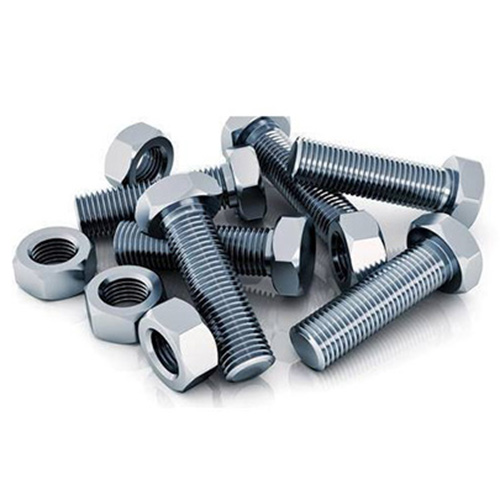
Stainless steel nut bolts are fasteners commonly used in various industries and applications due to their corrosion resistance and durability. Here's a brief overview of stainless steel nut bolts:
Nut: The nut is a threaded fastener that mates with a bolt. It is designed to be tightened or loosened by turning, providing a secure connection.
Bolt: A bolt is a threaded fastener with a head at one end and a threaded portion at the other. It is inserted through materials and secured with a nut.
Corrosion Resistance: Stainless steel is known for its resistance to corrosion, making these nut bolts suitable for applications where exposure to moisture or harsh environments is a concern.
Durability: Stainless steel provides high strength and durability, ensuring that nut bolts can withstand heavy loads and harsh conditions.
Versatility: Stainless steel nut bolts are used in various industries, including construction, automotive, marine, and manufacturing, due to their versatility and reliability.
Hex Bolts and Nuts: Standard hexagonal-shaped bolts with matching nuts.
Hex Cap Screws: Similar to hex bolts but typically used in precision applications.
Hex Flange Bolts: Bolts with a flange under the head for distributing load and preventing pull-through.
Machine Screws: Smaller screws used in machinery and electronic applications.
Stainless Steel Studs: Threaded rods without a head, used to secure components.
Stainless steel nut bolts find applications in a wide range of industries and settings:
Construction: Used in building structures, bridges, and infrastructure projects.
Automotive: Essential components in vehicle assembly and repair.
Marine: Resistant to corrosion in marine environments, making them suitable for shipbuilding.
Manufacturing: Used in the assembly of machinery and equipment.
Renewable Energy: Commonly used in solar and wind energy projects.
Regular Inspection: Periodically inspect nut bolts for signs of wear, corrosion, or loosening.
Proper Tightening: Ensure proper torque values when tightening nut bolts to prevent over-tightening or under-tightening.
Replacement: Replace nut bolts that show signs of corrosion or mechanical damage to maintain structural integrity.
When selecting stainless steel nut bolts, consider the specific requirements of your application, such as load capacity, environmental conditions, and size. Always follow industry standards and guidelines for installation and maintenance to ensure optimal performance and safety.